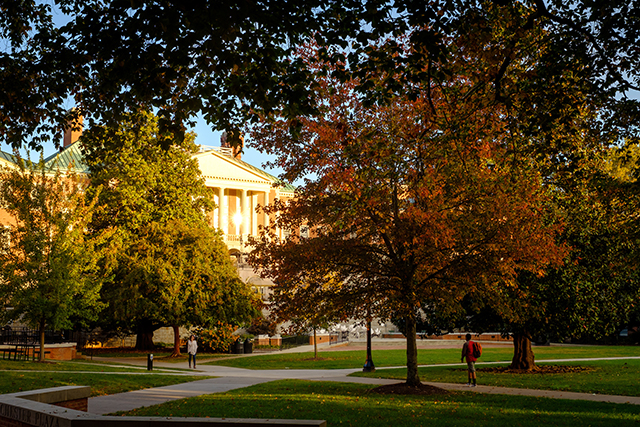The annual tradition of the Senior Colloquium dates back to the re-opening of Wake Forest College in 1868, following the Civil War. Every year, outstanding seniors write essays in a competition, and some are invited to present them as speeches at gatherings of the University and the broader community. I’ve always found the tradition inspiring. Today, I want to share a splendid essay that reminded me of the true bonds of community and the power of supporting our students with financial need. I can assure you that many of us in the audience were touched by this student’s remarks and his willingness to share his vulnerability.
—Maria Henson (’82), of Wake Forest Magazine
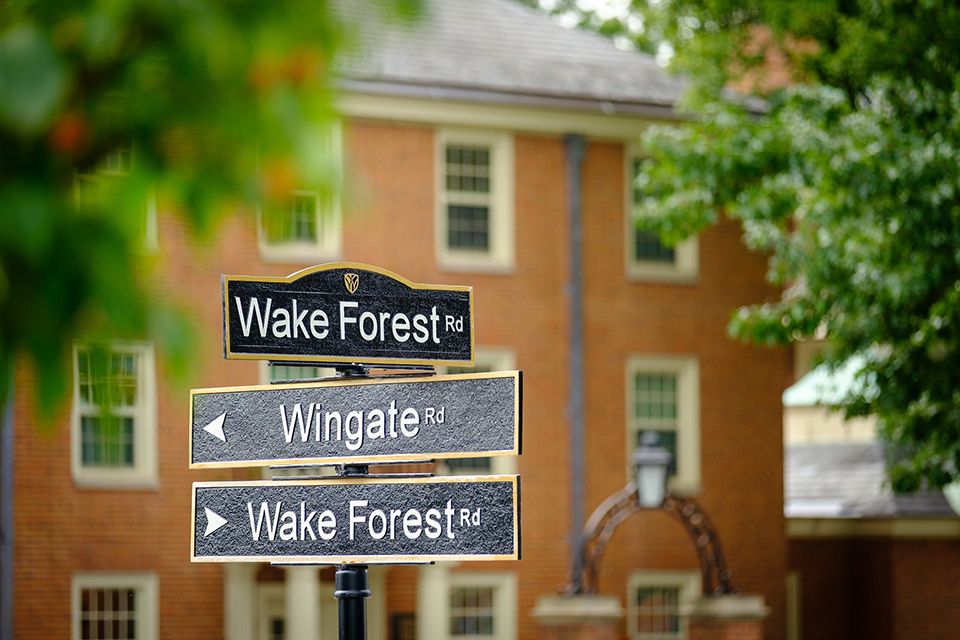
Prior to coming to college, no one beyond my immediate family knew much about my time growing up.
No one knew the full extent of my family’s hardships. No one knew the truth, the reality of our daily lives. No one knew of the nights we slept in the car, and no one knew we were homeless for so many years.
The most people knew was that we were from a low-income bracket, but no one knew that every morning before school, we would drive to the BP gas station on Hawthorne Road to use its lone bathroom to wash my hair.
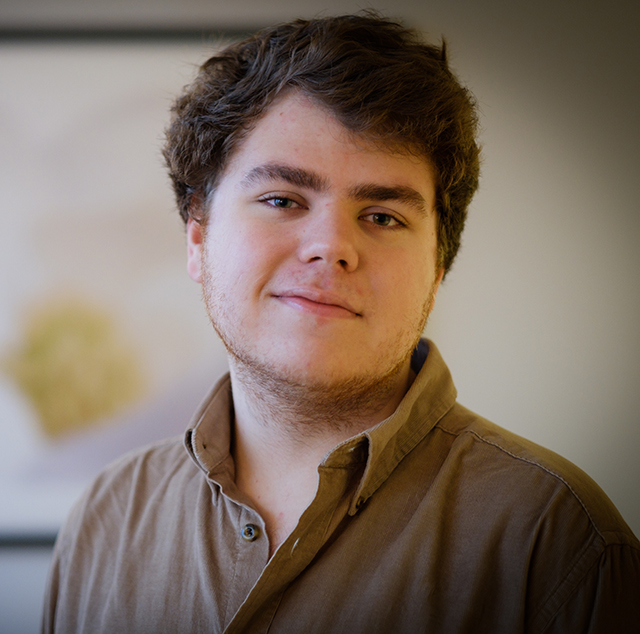
They didn’t know we went to the Harris Teeter on Cloverdale to use the restroom at night. They didn’t know we spent nights searching for a place to park the car, hoping we wouldn’t get caught or bothered while we slept. I had to lie about everything — not only to preserve my family’s dignity, but also because if anyone knew, I would lose everything: I’d lose my family and my life.
While many people can’t and will never be able to understand this idea or experience, those nights were safe for me. Those nights were when I was truly me. We would sleep in our cream 1985 Nissan Maxima: My dad in the driver’s seat, my mom in the passenger, Juliet, our old Doberman, on the floor in the back, and then me in the backseat. My family was a pack. We had each other’s backs — and we always will.
Given my past, I never thought I would attend college. While my parents told me that we would figure out a way, I didn’t believe it. I especially never thought I would attend Wake Forest. Wake was the rich-kid school — secluded and not meant for me. Nonetheless, I found my way here.
While my family is fortunate to have a home and more financial stability today, those days of sleeping in the car will always stay with me. Yet, I knew I had to go on. So as I started to think of my life post-high school, I knew a furlough from education wasn’t a possibility. This decision was rooted in both my love for learning and because of my parents’ teaching that framed college as the avenue out of poverty. Even though Wake didn’t seem to be where I could belong, I applied to be close to my parents and home. To my surprise, I not only got in, but got in without financial worry. This is a gift I will forever be grateful for. But, I still was in a daze: How was I going to Wake Forest, a place I never even dreamed of?
It wasn’t until my first day on campus that all the changes set in. While still in Winston, I was gone. Like many of us, I was away for the first time. Here I was, at college.
Just as I thought I would never find myself at any college, I thought I would never love Wake, never feel at home. My home was where my people were, 12 minutes away.
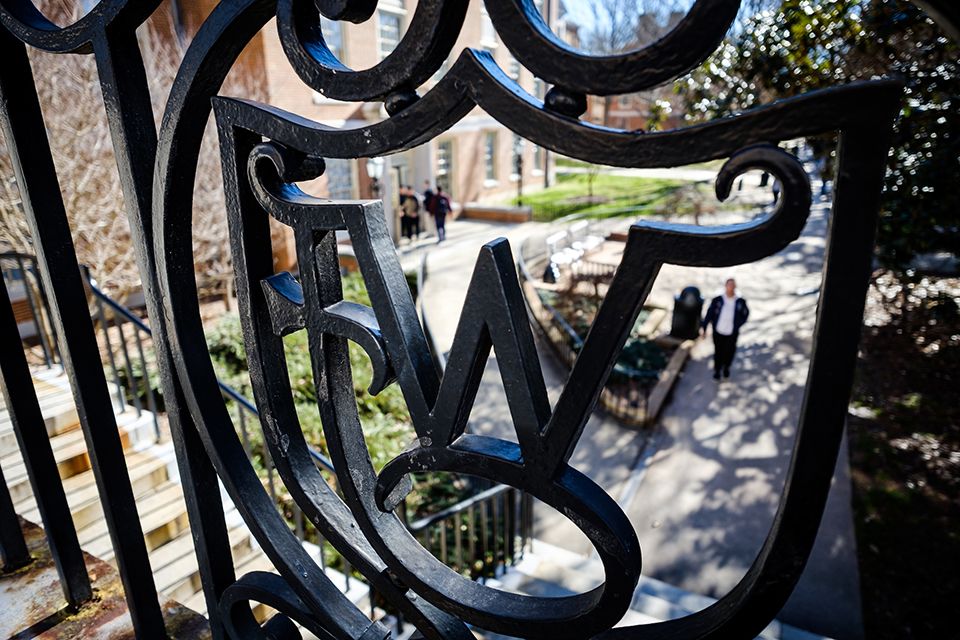 But I was wrong. I found my people here, and, in turn, I found a home. I built memories on this campus, and I found love and support I never thought I deserved. I felt safe and accepted.
But I was wrong. I found my people here, and, in turn, I found a home. I built memories on this campus, and I found love and support I never thought I deserved. I felt safe and accepted.
I think it’s important to say Wake isn’t perfect, and I must acknowledge how my privileged identities have helped me navigate my time here. But what makes this place the way it is are the people. It was at Wake that I found the people who made this place my second home.
Because of this circle of warmth and acceptance, I have stopped the lies, stopped the act and have been at peace with being truly me. I have been vulnerable and true to my past. And as a soon-to-be graduate, I know that I have been able to feel this way because of one particular weekend my first year.
It wasn’t until fall break of my first year that people knew of my past. Prior to the weekend, no one knew anything. It was during those three days that I began to feel ready to finally share my truth. To my surprise, my first time sharing my past was to a room of 60 people; some I knew, others I didn’t.
I will never forget that moment. I trembled as I began, tears rolled down and somehow, I told them. And they listened without the judgement I always expected. I told them secrets that I had thought I would have to live alone with forever. I was scared to my core, but in no way was I ashamed in that moment. I felt empowered and loved.
And that love came and continues to come from so many. It was during that weekend that I found some of the most wonderful people I’ve ever met. I found some of my best friends, and my family grew. No longer was it just my immediate family — now I had Zach, Chizoba, Hannah, Erica and many more. My life changed because of that weekend, because of the BRANCHES Social Justice Retreat.
I am forever indebted to the student organizers and the Pro Humanitate Institute (PHI) for that weekend. In my four years here, I always find my mind going back to that weekend. I never really registered why, but now I see that my ability to share my truth there has impacted me in ways I am just now understanding.
It was during the drafting of this speech that, for the first time, I really began to fully feel the bearing those couple of days had on me. That weekend and the people there will forever stay in my heart. It was then that I finally felt like myself, that I felt like David in a place without my parents. Coming to Wake Forest enabled me to finally be true to myself.
After BRANCHES, I found myself delving into social justice and involvement within PHI — doing all I could to promote justice in our community. My future changed because of Pro Humanitate. It was through our school’s motto that I found people devoted to improving each other, and the world.
Being on this campus empowered me to understand myself, and in turn, to understand what I want to do in life. My life is and will always be about promoting change — for I want to live a life for humanity.
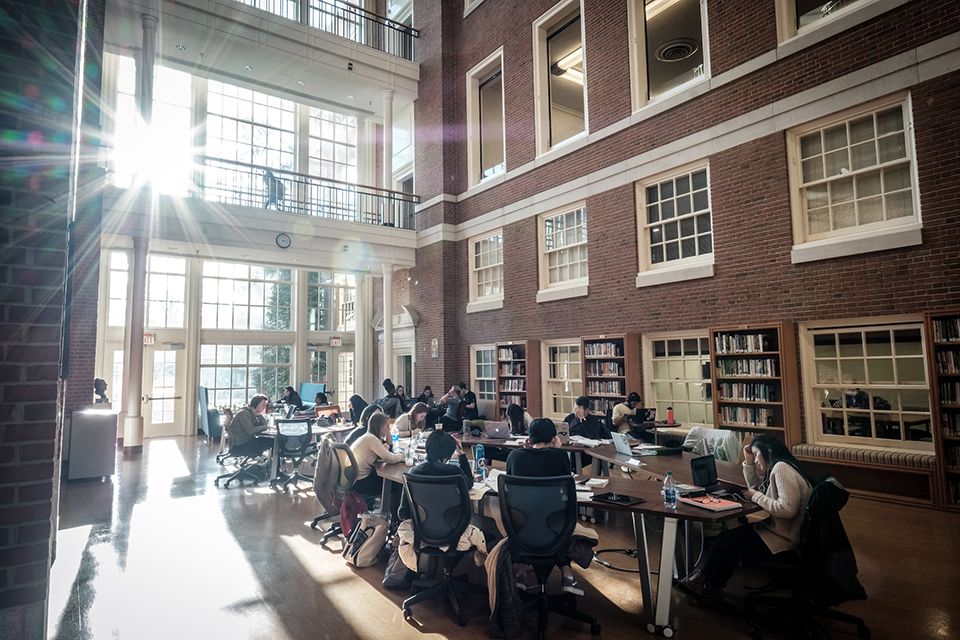 I now see that this campus — its students, faculty and staff — did what my parents did and still do. They protected, nurtured and made me feel safe. But they also pushed me to reflect and become a better activist, a better student, but mostly, a better person.
I now see that this campus — its students, faculty and staff — did what my parents did and still do. They protected, nurtured and made me feel safe. But they also pushed me to reflect and become a better activist, a better student, but mostly, a better person.
Just like those days sleeping in the car, I fall asleep every night in my bed at Wake, in my home, feeling safe, loved and thankful. No longer do I worry about shame — because this is my story. This is my life. And it all started because of that weekend, but mostly, because of you all.
I say this, but still many of my close friends are unaware of my past while others probably only know of me for my poofy hair and love for Moe’s Southwest Grill. So to have this opportunity to share a part of me with you all means a lot. And while I am full of joy, I am still in shock — because here I am, almost four years later, sharing my story with a lot more than 60 students. Life is truly unpredictable.
So, while I never thought I would be here, never thought I would be graduating from college, I truly never thought I would be sharing my truth.
Being on this campus, I have gained something I never thought I would have. I have a home beyond home — a pack beyond my family — and a place I will always treasure.
David Ajamy II (’19) is politics and international affairs major and a journalism minor. He is a regular contributor to the Old Gold & Black, the student newspaper.
